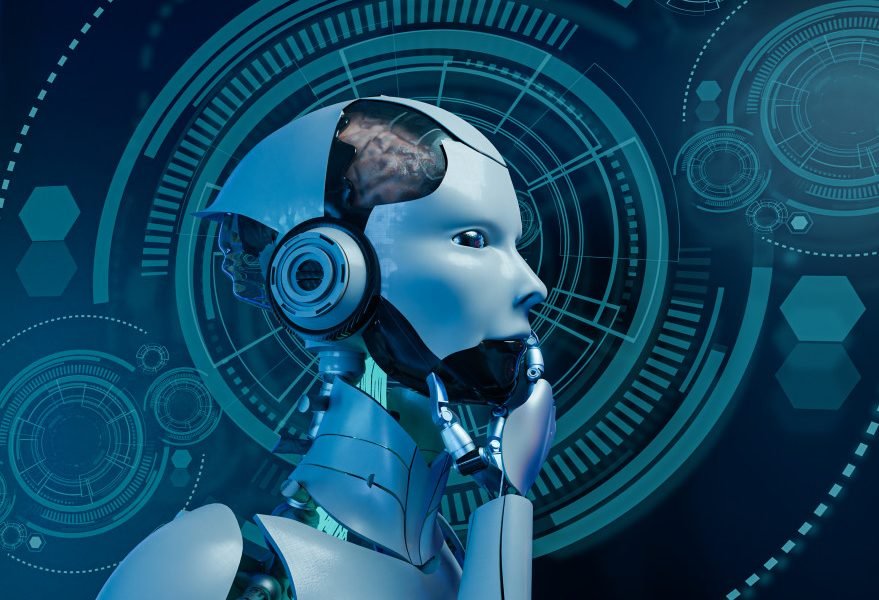**Unleashing the Potential of Large Language Models: The Future of Work**
Artificial intelligence (AI) has made massive strides in recent years, sparking both excitement and concerns about the future of employment. Large language models (LLMs) exemplify this progress, as they are trained on extensive text data to comprehend and produce human-like language.
**LinkedIn Report Reveals Impact of AI on Jobs**
A recent report by LinkedIn indicates that 55% of its global members may undergo changes in their jobs due to the rise of AI. Understanding how AI and LLMs will disrupt the job market is crucial for businesses and employees to adapt and compete in a swiftly evolving technological landscape.
**Large Language Models: Revolutionizing the Job Market**
Goldman Sachs predicts that generative AI and LLMs have the potential to disrupt 300 million jobs in the near future. Additionally, they project that 50% of the workforce is at risk of job loss due to AI integration in business operations.
LLMs are streamlining tasks previously handled by humans, such as customer service inquiries, through their vast knowledge base. These models are evolving beyond customer service to applications like content creation, translation, legal research, and software development.
**Automation Trends with Large Language Models and Generative AI**
As LLMs and generative AI become more dominant, automation in the workplace is on the rise. This shift could lead to partial automation, displacing some workers while creating new opportunities for others.
**Reshaping Routine Tasks and Industries**
AI and LLMs excel at automating repetitive tasks like data entry and appointment scheduling, leading to concerns about job displacement. Sectors with high volumes of routine tasks, such as manufacturing and administration, are particularly vulnerable to LLM automation.
**Navigating the Impact of AI on Low-Skilled Jobs**
AI-driven automation is expected to impact the low-skilled workforce significantly. Without upskilling and transitioning to roles compatible with AI technologies, low-skilled workers risk being left behind in the evolving job market.
**The Shift Towards AI and LLMs in Business Operations**
The adoption of AI and LLMs is transforming business operations by reducing costs, improving efficiency, and enhancing service quality. This shift necessitates the need for reskilling and upskilling programs to equip workers for the AI-dominated future job market.
**Embracing the Future of Work in the Age of AI**
While the integration of AI is inevitable, employees can enhance their productivity by leveraging AI and LLMs in their daily tasks. Collaboration between humans and machines can lead to increased productivity and efficiency.
**Reskilling For the Era of LLMs and Generative AI**
The rapid evolution of multi-modal LLMs and AI technologies underscores the importance of reskilling for both organizations and workers. Skills like prompts engineering, data fluency, AI literacy, and critical thinking will be crucial for succeeding in the AI-driven job market.
**Ethical Considerations in the Age of AI**
The presence of AI in the workplace raises ethical considerations related to algorithmic bias, employee privacy, and inequality. Organizations must address these ethical issues to ensure fair and responsible AI usage in the workplace.
**Shaping the Future of Work with AI and LLMs**
The integration of AI and LLMs is reshaping the workplace paradigms, impacting the future of work and careers. It is imperative for businesses and employees to adapt to the changing landscape and capitalize on the opportunities presented by AI technologies.
1. How will AI and LLMs impact the future of jobs?
AI and LLMs are expected to automate routine tasks, increasing efficiency and productivity. While some jobs may be at risk of being replaced, new job roles and opportunities are likely to emerge.
2. Will AI and LLMs result in job losses?
There is a possibility that some jobs may be lost due to automation, but new job roles that require human skills like creativity, emotional intelligence, and problem-solving are expected to be created.
3. How can individuals prepare for the impact of AI and LLMs on the future of jobs?
Individuals can upskill and reskill themselves to stay relevant in a rapidly evolving job market. Developing skills like critical thinking, adaptability, and collaboration will be crucial in the future.
4. What industries are most likely to be affected by the adoption of AI and LLMs?
Industries like manufacturing, transportation, customer service, and healthcare are expected to be significantly impacted by AI and LLMs. Jobs that involve repetitive tasks or data processing are more likely to be automated.
5. What are the potential benefits of AI and LLMs for the future of jobs?
AI and LLMs have the potential to increase productivity, improve decision-making, and create new job opportunities in emerging fields like data science, cybersecurity, and AI development. Overall, they have the potential to enhance job quality and efficiency in various industries.
Source link

